President-elect Trump appears determined to follow through on one of his campaign’s defining issues – immigration. In a recent interview, he called for an immediate deportation of 2-3 million undocumented immigrants with criminal records. This stance has been met with resistance from local officials and has instilled fear among families.
Recently, I spoke with two former mayors to get their thoughts on how the emerging policy priorities of a Trump administration, including immigration, would impact cities. Mayor Scott Smith is a Republican who served as mayor of Mesa, Arizona until 2014; Mayor Michael Nutter is a Democrat who served as mayor of Philadelphia through 2015. The two are friends, having served consecutive terms as presidents of the U.S. Conference of Mayors, and both are Nonresident Senior Fellows in Brookings’ Metropolitan Policy Program. After such a long, divisive election, it was refreshing to see some common ground emerge, including on immigration policy.
Below is an excerpt from our conversation, which will be published in full on Brookings’ Intersections podcast on November 30:
AMY LIU: I want to direct this question to you, Mayor Smith. Since being elected, Trump has pledged to immediately deport 2 to 3 million undocumented immigrants with criminal records, a policy that has huge bearing on Maricopa County, where three-quarters of all undocumented immigrants in Arizona live. Is there widespread support for Trump’s statements on immigration in Mesa?
MAYOR SCOTT SMITH: I think, and this is both the challenge and the reality of the debate on immigration, if Donald Trump or anybody says I’m going to deport X-number of criminals — and when I say “criminals” I mean people who have served prison time — you will get broad-based support on both sides of the aisle, even among Latinos. Nobody who has a criminal record and is here illegally should stay here. Deport them.
But if you say I’m going to go out and deport illegals, once again, both sides of the aisle, majority of Republicans in Maricopa County would say, no, you’ve gone too far.
It’ll be interesting to see how he is going to implement a policy like that because if he truly goes after the criminal element, he’ll get support. If he doesn’t, he’ll get condemnation from both sides and from all levels.
MAYOR MICHAEL NUTTER: Right.
AMY LIU: And so, Mayor Smith, what you’re saying is there is support for some pathway to legal residency for the remainder of the illegal immigrants that are here. Is that true?
MAYOR SCOTT SMITH: Poll after poll shows that even conservative Republicans don’t believe in a mass deportation and they want some kind of rational approach to immigration, which would mean allowing those who have been here the right to earn a chance to stay here. So it begs for a rational discussion, something we’ve been unable to have on immigration.
AMY LIU: Mayor Nutter, do you want to add your observations on what impact some of Trump’s language has had on a city like Philadelphia?
MAYOR MICHAEL NUTTER: Well, some may recall last year while I was still in office in 2015, Donald Trump announced his proposed ban on Muslims. In a 24-hour sequence of his statement, someone in Philadelphia dropped a severed head of a pig at the doorstep of one of our mosques, Al-Aqsa. I had a press conference the next day to address both issues. I brought together the Muslim community, the Christian community, the Jewish community, and many, many faith leaders across the city of Philadelphia. This is still the United States of America. It’s in the First Amendment that we will not establish a religion and not have a religion test.
Scott and I are in full agreement. Criminals, I don’t want them. And what I’ve said back in Philly is, when I was in office, I don’t want homegrown criminals. I don’t want folks who just got here last week or last month, wherever they came from. Violent criminals, you have no refuge in Philadelphia.
At the same time, [if] some mom, some dad driving their car has documentation issues, and the next thing you know it looks like President Trump would want that family or part of the family deported – for what?
So, first of all, cities are not in any way, shape, or form in a position to do the job of the federal authority. Secondly, those aren’t the families that you should waste any resources on trying to deport. There are plenty enough criminals to chase after. What we need is a rational, reformed immigration policy for all 50 states and territories that offers a pathway to citizenship. Folks came here for a particular reason, mostly to become citizens. They work hard, take care of their families, start businesses, employ others in some instances, and are not the problem.
This conversation has been edited for length and clarity. It will be published in full on Brookings’ Intersections podcast on November 30.
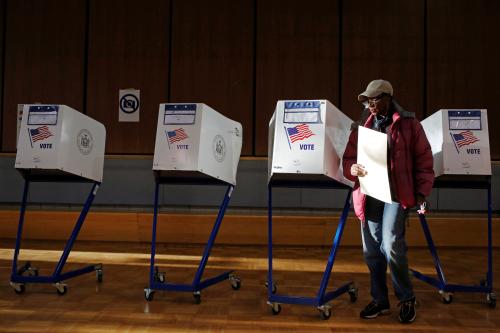
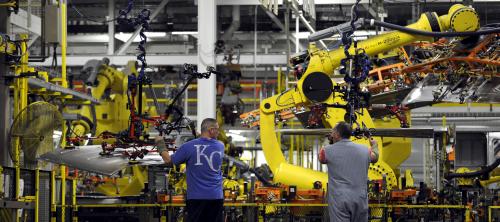
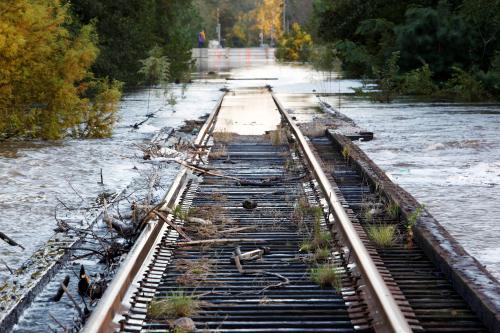

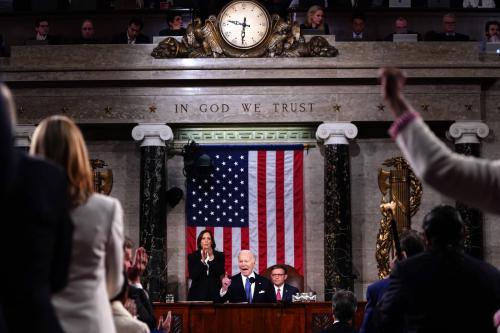
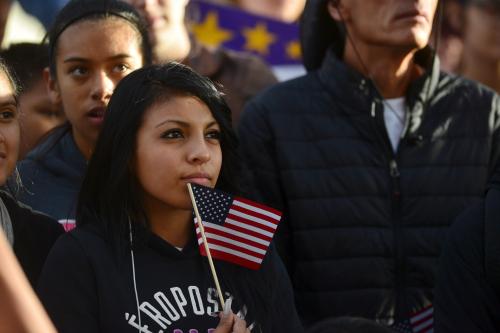

Commentary
Mayors weigh in on Trump’s proposed deportation of immigrants
November 21, 2016